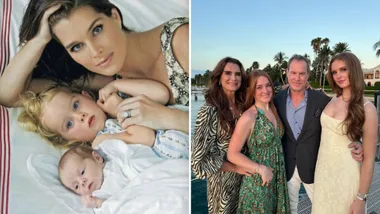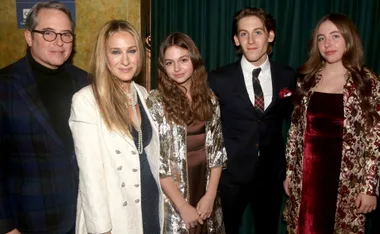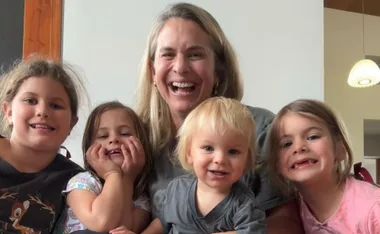The focus on fertility has created a worldwide panic — and that panic is being exploited by advertising companies, writes Jordan Baker.
This month, New York Magazine features a naked, wrinkled, 60-plus pregnant woman on its cover, asking: is she just too old for this?
The grey-haired woman stares at the camera, with an expression that dares the onlooker to be shocked.
It is confronting, but not nearly as confronting as it would have been a decade ago. Open any magazine these days and there’s likely to be a story about fertility, or lack thereof.
Related: Woman giving birth to be shown on TV
Single parents, IVF for the 50-plus, gay parents, ticking biological clocks, baby bonuses, sperm and egg donation, surrogacy, sex selection… the list goes on.
It wasn’t always thus. A browse of 1970s covers reveals the odd story about the pill or menopause, but otherwise no stories on fertility. It is the issue of our age, and a good thing, too.
Silence left women and men to suffer alone. Out in the open, they can express pain, find support and learn how technology can help.
Publicity leads to judgment of others’ choices, which is painful but seemingly inevitable.
For me, the problem is when the focus on fertility creates a panic – and when that panic is exploited.
An IVF clinic recently created an emotional television ad of a woman having a baby.
The clinic’s chief executive admitted the ad might offend some people, but said it was aimed at demystifying the issue of IVF by showing the end result. The offence bit she referred to was the messiness of birth.
To me, the offensive element was using footage of a tearful, emotional mother to pluck the heart strings of would-be clients in the hope it would tip them towards trying for a baby. ‘
I’m no advertising expert, but I’ve heard that the best ads exploit emotion. But not here, please. With fertility, emotions run deep enough.
A recent newspaper ad featured an illustration of a woman with the number 35 over her breasts and a clock across her womb, with the headline: Single and wanting a baby?
Yes, fertility does decline after 35, but I don’t know a woman who needs an advertisement to inform her of that. This advertisement was clumsily exploiting fear.
Good luck to any woman who tries for a baby. I wish her the best, but I don’t want her emotionally manipulated into such a big decision.
A single woman who saw the ad told me she burst into tears, despair prompted by the fear of childlessness. She is only 30.
I’ve known women to have children not so much out of want as out of fear for what might happen if they don’t.
What if mothers are right and children really are the best thing they’ll ever do? And how would they cope with the disgraceful insinuation that they somehow are lesser women for not having had children?
Then there is the complexities of the treatments offered. Three years ago, no clinic in Sydney would offer to freeze a woman’s eggs because the chances of a successful outcome were so slim.
Technology is improving slowly and the service is now available, albeit so unreliable that few IVF clinics advertise it (one that does encourages women to “override your biological clock”).
At least clinics here, unlike some in the US, don’t “guarantee” babies to women over 40.
Sperm donation, another ”solution” on offer, has its own issues. The first generation of children born to men who anonymously donated their sperm has grown up, and asks questions about the fathers that may never be answered.
NSW rules allowing donor children to know the identity of their sperm donor were changed only for babies born since last year and rules vary across states.
You can, of course, choose the option of unscreened sperm ordered over the internet, with all the hazards that go with that.
Related: Tips for solving your infertility problems
If it’s their considered choice, women should freeze their eggs or use donated sperm.
They shouldn’t shy away from IVF clinics on the assumption they’re unethical because, in Australia, most clinics are scrupulous about realistically informing women.
And we should write about these issues because we need educative, balanced reports on fertility and robust discussions about adoption and surrogacy.
My point is that we should make every effort to avoid creating panic, and that includes exploiting women’s hopes and fears through advertising. Fertility is fraught enough.
Jordan Baker is The Weekly’s News Editor. Click here to follow her on Twitter and here to follow The Weekly.
Your say: Do you think advertising exploits women’s fear of infertility?
Video: Fertility clinic ad show woman giving birth











